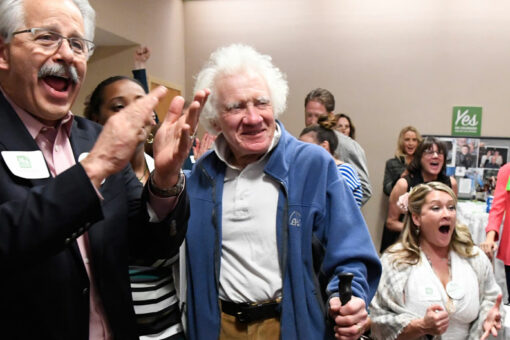Colorado votes to legalise assisted dying

Sarah Wootton, Chief Executive of Dignity in Dying said:
“When implemented, the End of Life Options Act will enable dying Coloradans to have choice and control in their final months. It will bring immense relief to those whose suffering can no longer be alleviated by palliative care, and provide peace of mind to those comforted simply by the fact that the option is there if they need it.
“The number of Americans covered by assisted dying legislation has now grown to almost 57 million people. Meanwhile, dying people in this country are denied this choice at the end of life.
“They are instead faced with a dire set of options. Just yesterday we learnt of Lawrence Klein – a terminally ill pensioner who, worried he would not be well enough to travel hundreds of miles to Switzerland for a safe assisted death, ended his own life alone, behind closed doors while his wife was out at the shops.
“Lawrence’s story is far from isolated. Every year over 300 terminally ill people end their own lives in this country in desperate and often traumatic attempts to wrestle back some control from their illness. This is on top of the dozens of Britons who have the means and strength to travel to Switzerland – every two weeks someone from the UK makes the journey to be assisted to die there.
“In a country where 82% of the public support assisted dying, it is a disgrace that our broken law remains in place while the rest of the world moves on. I hope that our Government takes the time to listen to those it purports to represent, who strongly believe, like Coloradans, that offering the option of assisted dying for dying people is the kind, compassionate and right thing to do.”
***ENDS***
For media enquiries, please contact Ellie Ball on ellie.ball@dignityindying.org.uk / 07725433025
Notes to Editor
Dignity in Dying campaigns for greater choice, control and access to services at the end of life. It advocates providing terminally ill adults with the option of an assisted death, within strict legal safeguards, and for universal access to high quality end-of-life care.